Health Tip #1 - diet and your overall health.
Your diet’s impact on your health is huge, and your diet is what makes you healthy. You can exercise, have physio, and even head to ECP Health to make sure your circulation is at its peak, but all of this means nothing without a good diet. Diets are involved with heart disease prevention, and can even speed up your healing process in your sports injury treatment!
Read on to find out more as we explore this vast topic.
Healthy eating?
Food is growing to be an increasingly important part of our culture and in our daily lives as food is more accessible than ever before, and it turns out food can be complex. Your diet should be centred around eating a variety of foods that help you feel (and look!) great, improve your mood, and maintain a healthy weight. Whether you’re sticking to a budget, or you’re splashing out, eating wholesome and nutritious meals is one of the key aspects to living a long and healthy life.
Healthy eating is all about giving your body the energy (calories) and the nutrients (instructions for your body) on staying strong and healthy. Eating a wide range of food is important to overall health, and ranges from plenty of veggies and fruit, whole-grains, fibrous foods, and food low in sugar and fats (fish, eggs, legumes, nuts or seeds). It has been proven many times that foods containing unsaturated fats, high sodium, or high in sugar, are bad for your holistic health and well-being.
We recommend listening to your body to know what it wants to eat and what it needs; for example, some people don’t do well on a diet with minimal carbs. Some individuals need a low FODMAP diet for IBS, whereas others need to live on the Keto diet for a variety of health disorders. It would be best if you talked to your doctor or a licensed nutritionist to make sure you are getting the right range of nutrients and calories for your body and lifestyle.
 Source: Maddi Bazzacco
Source: Maddi Bazzacco
Exercise and recovery
There is so much information out there on post-exercise food recovery, but we here at ECP Health know the facts. We have a range of clients working with us, from our star athletes in the Warriors, to our day-to-day sedentary corporate.
When you exercise, your body uses a heap of energy to keep it powering forward through the workout, whatever this may be. This means the glycogen (energy) and protein stores in your muscles are being used and broken down. After a workout, nutrition is paramount to helping your body rebuild the broken down muscle proteins and glycogen stores. Research states that having a ratio of 2:1 to 4:1 carbohydrates to protein after can recover and replenish rehydration and glycogen stores. It is also ideal to eat this ‘magical ratio’ within 30-60 minutes after exercise to ensure muscle recovery and rehydration, as your muscles will begin to rebuild the damage as soon as it can. Replacing these muscle building blocks can prevent injuries from overuse, as it will speed up the healing process for your body.
If you’re a consistent exerciser, it’s essential to provide your body and muscles nutrients needed for exercise and healing throughout the week. A healthy balance of carbs, fats, and protein eaten each day will keep you looking and feeling your best.
Some easy and healthy post-nutrition snacks could be:
· Toast with peanut or almond butter
· Sweet potatoes with low-fat yoghurt (such as Greek yoghurt)
· A vegetable omelette.
Sometimes you only have half an hour to workout, so think about easy snacks to eat on the go. We recommend crackers and tuna, fruit and nut butter, or even a protein shake with bananas and oats.
 Source: Taylor Brandon
Source: Taylor Brandon
Heart disease prevention
Yes, you read that right. Eating a well-balanced and healthy diet is integral to heart disease prevention. When deciding on a healthy eating plan, think about the below notes from us, and proven by science:
· Look for foods low in saturated fats, trans fats, and sodium.
o This could include avocados, vegetable oils and unsalted nuts or seeds.
· Fruits and vegetables
o Over half of your diet needs to be dedicated to fruits or vegetables, with more of a focus on eating the veggies as they contain less sugars.
o If you struggle with eating vegetables, find ways to ‘sneak’ them into your meals, like making a smoothie or mixing it into foods you like.
· Fibre-rich whole grains
o Think of foods like brown rice or grained bread.
· Nuts, legumes, and seeds.
o Lentils, red kidney beans, or split peas are great and super affordable!
· Lower-fat (and check the sugar!) dairy products.
· Skinless poultry and fish.
o If you do choose to eat red meat, choose the leanest cuts you can.
· No sweetened beverages.
o Artificially sweetened!
Maintaining a healthy diet is great for preventing heart disease, as it stops any build-up from happening around your heart and blood vessels.
A healthy diet is super important to your overall health, contributing to sports injury treatments and heart disease prevention. Diet works perfectly in tandem with ECP Therapy and maintaining a holistic health regime for optimum well-being. Stick to the tried and true ratios (half your meal veg, quarter carbs, quarter protein), and you will be good to go for years to come.
 Source: Heart Foundation NZ
Source: Heart Foundation NZ
